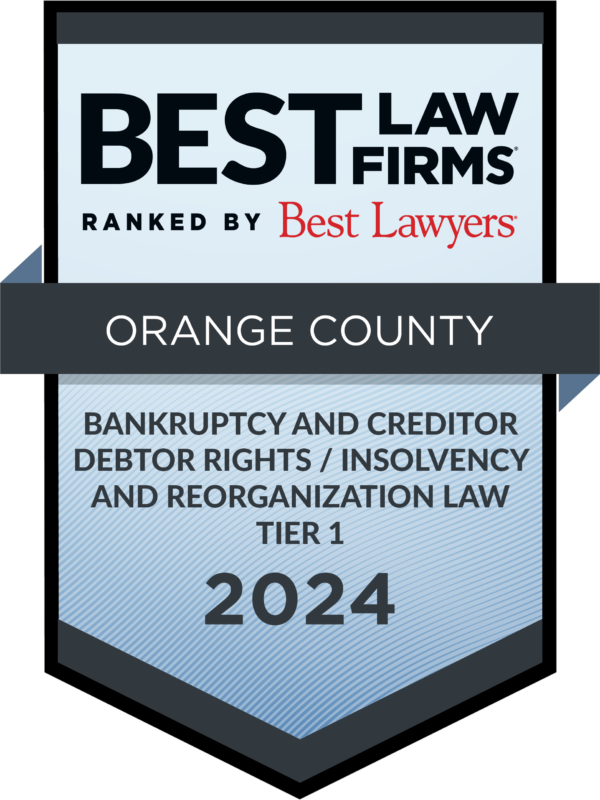Fraud and Lender Liability Lawyer in Orange County
Home » Practice Areas » Fraud and Lender Liability Lawyer in Orange County
Practice Areas

A loan contract or agreement carries responsibility on the part of both the creditor and the debtor. While borrowers are obligated to repay the debt according to the appropriate terms, lenders are also responsible for acting honestly and in good faith. When this does not occur, fraud and lender liability lawsuits can be the result.
Marshack Hays Wood has an experienced team to represent financial institutions, lenders, and government entities in the event of a lending dispute. We have achieved significant recovery from third party borrowers, real estate appraisers and mortgage brokers. We also have extensive experience negotiating with lenders and secured creditors in Chapter 11 bankruptcy proceedings to maximize the ability of debtors-in-possession to cure defaults, adjust interest rates, reduce security interests, and reorganize secured debt.
If you have a lender liability claim, the team at Marshack Hays Wood is here to help. To schedule a consultation with a lender liability lawyer in Orange County, please call our office at 949-333-7777 today.
What Is Fraud and Lender Liability?
Loan agreements require responsibility by both the creditor and the debtor. Both have an obligation to fulfill the terms of the loan, by making timely payments and properly collecting those payments. When a lender fails to uphold their end of the contract, a fraud and lender liability lawsuit may be the result.
Fraud and lender liability laws became widely used in the 1980s, and their prominence resurfaced after the credit crunch of 2008. The majority of cases filed in this category involve overly aggressive collection efforts on the part of the lender, rather than an actual breach of loan terms. However, the law can also be used for breach of contract, such as when a lender agrees to provide a mortgage loan and fails to follow through on that agreement.
What Are the Rights and Responsibilities of Lenders in Orange County?
Obviously, borrowers have certain rights and obligations on loan documents and other agreements. The lender-borrower relationship is a delicate one that requires trust, communication, and timeliness. Borrowers must make on-time payments and fulfill obligations to lenders, while lenders must treat borrowers fairly. However, lender-borrower relationships are rarely so simple.
At first glance, lenders negotiate loan agreements with borrowers and prepare loan documents. These documents outline the terms and conditions of the agreement, and borrowers must abide by them. However, the lender’s relationship to the borrower is a fiduciary relationship. This means that they must act “in good faith and fair dealing” while also protecting the best interests of their company.
One of the biggest responsibilities of a lender is to keep up with the borrower’s financial state and determine whether or not they are able to repay the loan. However, they are also bound by the “good faith and fair dealing” doctrine. In other words, they must strictly adhere to the policies, regulations, and procedures required by their employer.
Any failure on the part of the lender could be deemed lender misconduct or liability.
What Is Lender Liability Law in California?
Importantly, a recent decision by the California Supreme Court has limited the tort liability of services and lenders. On March 7, 2022, the Court held in Sheen v. Wells Fargo Bank that lenders do not owe a duty of care to borrowers to “process, review and respond carefully and completely to” borrowers’ applications for loan modifications.
However, this one case does not impact all legal claims involving lenders. Rather, it impacts certain tort claims. General lender liability laws require lenders to treat borrowers fairly. Otherwise, they open themselves up to lender liability lawsuits.
Types of Lender Liability Claims

Borrowers can sue lenders for a number of reasons, including those listed below. If you have been harmed by a lender’s breach of their contract or fiduciary duties, you may have a valid claim.
Breach of Contract
A breach of contract occurs when one party fails to fulfill their end of the bargain that is under contract. Depending on the specific circumstances set in the contract, a breach can occur when one party fails to perform a certain service on time, does not perform the service in accordance with the terms of the contract agreement, or does not perform the services at all.
Lender liability may include a breach of any or all of the following:
- The loan agreement
- The lender’s fiduciary duty
- Duty of good faith
- Duty of fair dealing
- Other legal obligations owed to the borrower by the lender
Breach of Fiduciary Duty
Someone who owes a fiduciary duty to another person is expected to look out for their interests. Therefore, in a fiduciary lender-borrower relationship, the lender is expected to look out for the borrower’s interests. Not every lender-borrower relationship is a fiduciary relationship. If the lender were to be a financial advisor to the borrower, however, the relationship would become fiduciary.
Improper Foreclosures
Wrongful or improper foreclosures happen when a financial institution foreclose on a property without the appropriate legal basis. If the foreclosure happens as a result of negligence, mistakes, or misconduct, the borrower has the basis for a lender liability claim.
Loan Application Violations
Lenders can also engage in misconduct if they violate a loan agreement or application. This could happen in any of the following ways.
- Fraudulent appraisals
- Breaching a forbearance agreement
- Discriminatory lending
- Breach of loan commitment
- Application misrepresentations
- Undue delays from improper processing of applications
- Recommending clients to choose loans with higher costs or interest rates for personal gain
- Requiring insurance that is very difficult or unnecessarily expensive to have
Improper Collateral Sales
Such claims can also arise from the inappropriate handling or sale of collateral. Inappropriate collateral sales happen when the lender fails to adhere to the rules of the collateral. Specific laws and regulations dictate when and how a lender can claim or sell collateral. For example, lenders must use fair appraisals in their sale of the collateral. Intentionally using low appraisals is an inappropriate way to handle collateral.
What Is a Lender Liability Claim?
Filing a fraud and lender liability lawsuit typically begins when the borrower recognizes some type of unfair or fraudulent conduct on the part of the lender. This is not always as simple as it sounds, since lenders are traditionally seen as the entity in control of the lending situation. However, like lenders, borrowers have certain rights in a loan agreement that are protected under the law.
At the same time, borrowers must prove that a breach of contract occurred in order to hold the lender liable. Lenders are also entitled to legal representation to ensure their rights are protected and they are able to make significant recoveries against debtors that fail to pay. The unique circumstances and complexities of this type of litigation calls for experienced legal representation on both sides. If you are facing a breach of contract or other business litigation issue, Marshack Hays Wood can help.
Elements of a Lender Liability Claim
In order to have a valid and successful lender liability claim, you must show that the following elements are present in your situation.
- The lender owed you, the borrower, either the promise of good faith and fair dealing or a fiduciary duty.
- That lender breached their duty to you, through a breach of contract, inappropriate collateral sales, or another way.
- You suffered actual damages from the lender’s breach or misconduct.
If you are unsure of whether or not you have a case, we recommend speaking with the lender liability attorneys at Marshack Hays Wood. Our legal professionals make it their goal to thoroughly investigate your claim, gather evidence and records to support you, and litigate your case in court if necessary.
What Is Lender Liability Coverage?
Just like individuals have liability coverage for their vehicles, lenders can have liability coverage for themselves. Lender liability coverage accounts for the errors and omissions that occur when a lender extends credit to a borrower. More specifically, it covers the insured person (the lender) in the event of losses resulting from negligence, mistakes, misstatements, and other breaches of duty in the extension of credit.
Can Marshack Hays Wood Help with Fraud and Lender Liability Claims?
Absolutely. Our Orange County bankruptcy lawyers handle much more than just bankruptcy. We represent lenders, borrowers, companies, and other parties in business and bankruptcy litigation. Our professionals have decades of experience in both state and federal courts, as well as appellate courts. We are results-focused from the very start of the legal process to the very end, meaning we’ll leave no stone unturned in helping you craft a compelling case. Don’t hesitate to reach out to a business litigation attorney in Orange County.
Contact a Fraud and Lender Liability Lawyer in Orange County
The attorneys at Marshack Hays Wood represent financial institutions, lenders and government entities in a myriad of financial, lending, mortgage lending, and real property matters. Our team has been at the forefront of the economic crisis, working with private and institutional lenders to achieve appropriate recovery against third party borrowers, real property appraisers and mortgage brokers. Our firm also has experience representing clients in RESPA, TILA and HOEPA disputes.
Disputes over lending terms can result in a stressful situation for all parties involved. The experienced team at Marshack Hays Wood understands the tensions caused by these types of disagreements and will work tirelessly to ensure your rights are protected and you are able to find acceptable negotiation terms.
READY TO GET STARTED?
We see the big picture! The attorneys at Marshack Hays Wood are well-versed in protecting creditors and their rights both before and after a bankruptcy case is filed.


